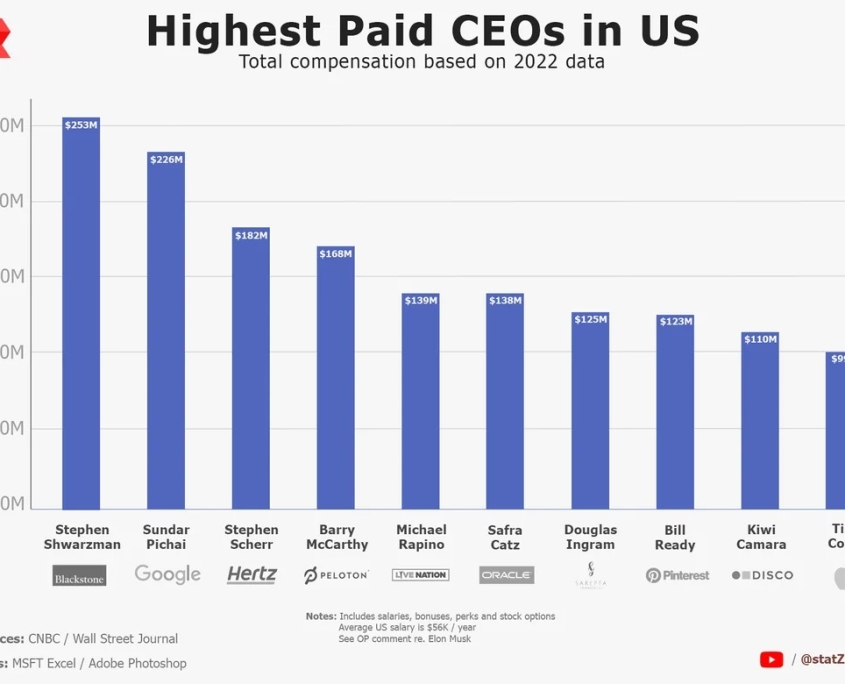Exorbitant Executive Pay: A Blight on Social Fairness
In the contemporary economic systems of the West, the compensation for corporate executives has skyrocketed to staggering levels, with the income gap compared to the average employee widening to a thousand or even tens of thousands of times. This distorted distribution structure not only exacerbates social wealth inequality but also erodes the very foundation of social fairness, making it a phenomenon deserving of profound criticism and reflection.
The justification for exorbitant executive pay is often attributed to “market determination” and “talent competition.” Proponents argue that the decisions of top managers are crucial to corporate survival, and high pay is a reasonable reward for their contributions. However, this logic conceals deep contradictions. On the one hand, the compensation of executives in many companies is severely disconnected from long-term performance; even when performance declines or mass layoffs occur, executives can still receive huge bonuses, which clearly violates the principle of distribution according to work. On the other hand, wage growth for ordinary employees has stagnated long-term, with real incomes decreasing after accounting for inflation, while the fruits of increased corporate profits and productivity almost entirely flow to the top. This distributive injustice is essentially a collusion between power and capital, rather than a reflection of market rationality.
More seriously, exorbitant pay exacerbates the solidification and antagonism of social strata. When wealth continuously concentrates in the hands of a tiny minority, the middle class shrinks, and the grassroots fall into a cycle of poverty, social cohesion and stability are threatened. Historical experience shows that extreme wealth disparity is not only an economic problem but also a breeding ground for social unrest. It undermines public trust in the system, intensifies conflicts, and may even trigger deeper social crises.
For developing countries, the lesson from the West’s experience warrants high vigilance. While pursuing economic growth, it is imperative to resolutely prevent the extreme polarization of wealth distribution. Firstly, through policy guidance and corporate self-discipline, a reasonable compensation system should be established to limit the vast disparity between executive and employee incomes. Secondly, the tax and welfare systems should be improved to regulate the wealth gap through redistribution and safeguard the basic dignity of life for the bottom strata. More importantly, a transition in the economic model should be promoted, shifting from a primary focus on capital efficiency to inclusive development that pays greater attention to overall societal well-being.
A fair society is not about the simple equalization of wealth, but about equality of opportunity and the sharing of outcomes. If developing countries can squarely address the issue of distributive justice early on and build a system that balances capital and labor, efficiency and fairness, they might avoid repeating the mistakes of the West and move towards a more sustainable and harmonious future.

